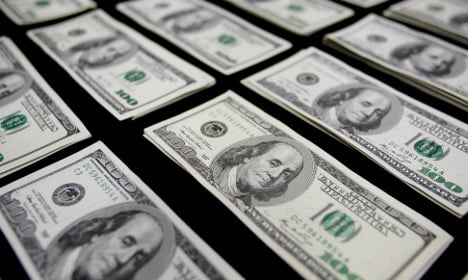The men, aged 23 and 19, were stopped in a routine police vehicle control operation near Kungsbacka, just south of Gothenburg, along the E6 motorway through western Sweden.
But when taking a closer look at the car they were travelling in, officers found stacks of dollar bills to a value of $50,000 (409,430 kronor) stashed away in the vehicle.
“The money was confiscated. We suspect counterfeit notes may be involved,” regional police spokesperson Thomas Fuxborg told the TT news agency.
The two men were brought in for questioning but were later released. However, Fuxborg said they remained under suspicion of money laundering as the investigation continued on Friday.
“The bank notes will now be examined by experts,” he added.
READ ALSO: Sweden set for brand new bank notes
Counterfeit money has been a rising problem for Sweden in recent years. The issue was brought to a head in May when the national financial watchdog (Finansinspektionen) fined two of the country's leading banks, Nordea and Handelsbanken, over lax anti-money laundering controls.
More than 100 billion kronor are laundered in Sweden every year, the watchdog said at the time.
“It is extremely important that this societal problem is counteracted by banks doing what they can to prevent criminals from laundering gains from criminal activities or organisations and people from financing terrorism,” it said.



 Please whitelist us to continue reading.
Please whitelist us to continue reading.